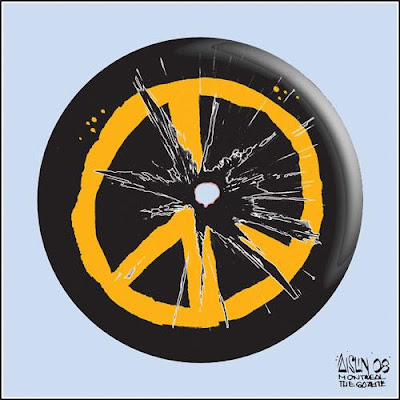By Kate Ward / February 21, 2008
Fifty years ago, little known designer and activist Gerald Holtom revealed his logo for the newly formed Campaign for Nuclear Disarmament. CND never applied for copyright on the symbol, preferring it spread freely so the anti-nuclear message could reach a larger audience. It evolved along the way to take on the wider meaning of peace.
Fifty years ago, little known designer and activist Gerald Holtom revealed his logo for the newly formed Campaign for Nuclear Disarmament. CND never applied for copyright on the symbol, preferring it spread freely so the anti-nuclear message could reach a larger audience. It evolved along the way to take on the wider meaning of peace.
Some might say that by forgoing copyright, the peace symbol surpassed all of its early potential. But if designers want to make the most impact, should they forge on without restrictions or consider designing for free?
Lack of restriction gives designers license to use the symbol to great effect. But all too often, the meaning becomes confused. We see it on products with values far removed from CND’s. Still, the core pacifist meaning is universally understood, and its message has never been more relevant. The nuclear debate still rages, and the Iraq War sparked some of the largest anti-war protests in history with the peace symbol very much in attendance.
The symbol communicates beyond linguistic and cultural divisions, at its best a beautifully simple expression of disgust for weapons of war and a demand for peace.
So forget your preconceptions and admit it: the world still needs peace.
From Carlos Lowry / The Rag Blog


















